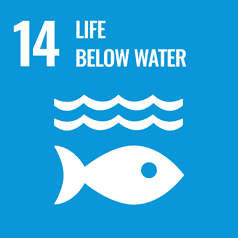Student returns from fieldwork investigating success of rat eradication efforts in Tonga

On 28th August 2022, Siosina Katoa, a PhD candidate from the Pacific Node at the University of Newcastle, returned from a week-long fieldwork expedition where she examined the effectiveness of rat eradication operations in the Vava'u group of islands in Tonga.
Along with a Field Assistant and a representative from the Tongatapu Department of Environment, Siosina represented the University. The Department of Environment's effort to use brodifacoum pellets to exterminate rats on the island has one more step left to do: conduct fieldwork.
In connection with this work, Siosina's PhD project, which is being overseen by Professor Matthew Hayward, Dr. Andrea Griffin, Dr. Sascha Fuller, and Dr. Michael Stat, is looking into how rat eradication programs have affected the Pacific Islands' ecological recovery. It is a component of the larger "Predator Free Pacific" program of the Secretariat of the Pacific Regional Environment Programme (SPREP), which aims to stop the loss of species by eliminating predators from the environment.
Fish dorsal muscles and skin were removed, marine algae and snails were collected from rocks near coasts, soil and sediment were excavated, feathers were plucked from the forest floor, and bird guano was scraped off dried leaves and plant tops. The success of the rat eradication operations was then determined by using isotopic analysis on these samples. For many years, researchers have utilized isotopes to identify the trophic levels and migratory paths of nutrients in island ecosystems. Additionally, Siosina will use eDNA to contrast marine biodiversity data with information gathered through ocular surveys.
Siosina has now started analyzing the data she collected on her trip, which will assist her in writing her thesis.
“This was the first time I have led a terrestrial sample collection trip and was a great opportunity for me to build my capacity as a conservationist,” she said.
The Pacific Regional Invasive Species Management Support Service (PRISMSS) of SPREP, which is administered by the New Zealand Ministry of Foreign Affairs and Trade (MFAT) in collaboration with the Tonga Department of Environment, is funding this fieldwork.
The University's Pacific Node is an initiative facilitated by NIER.
Contact
- Nikhil Achuthankutty
- Email: nikhil.achuthankutty@newcastle.edu.au
Related news
The University of Newcastle acknowledges the traditional custodians of the lands within our footprint areas: Awabakal, Darkinjung, Biripai, Worimi, Wonnarua, and Eora Nations. We also pay respect to the wisdom of our Elders past and present.

